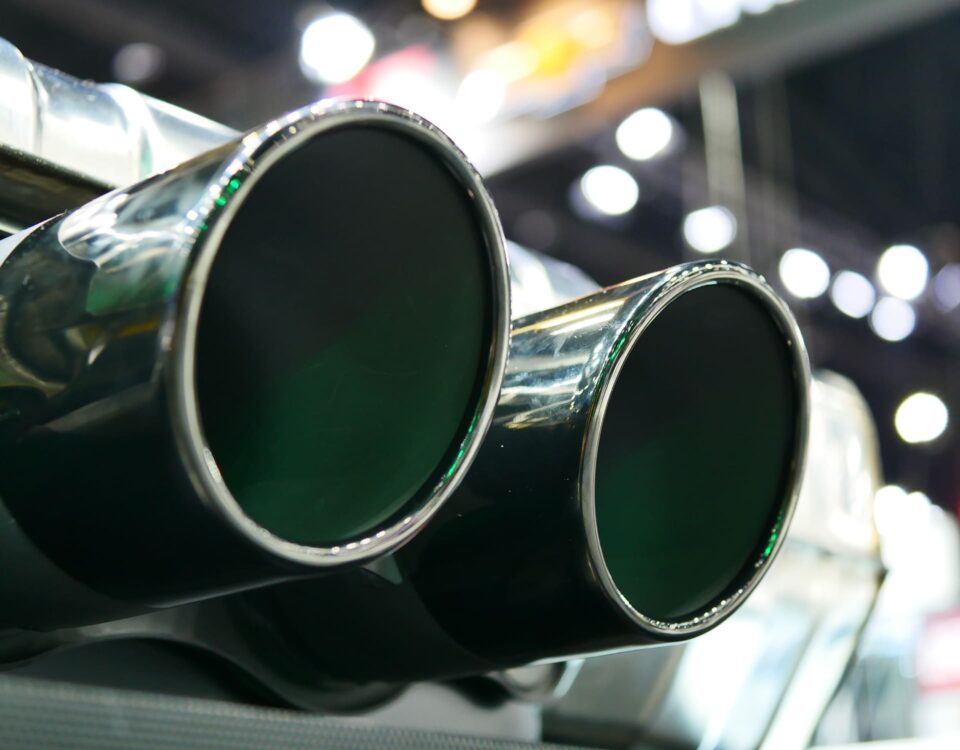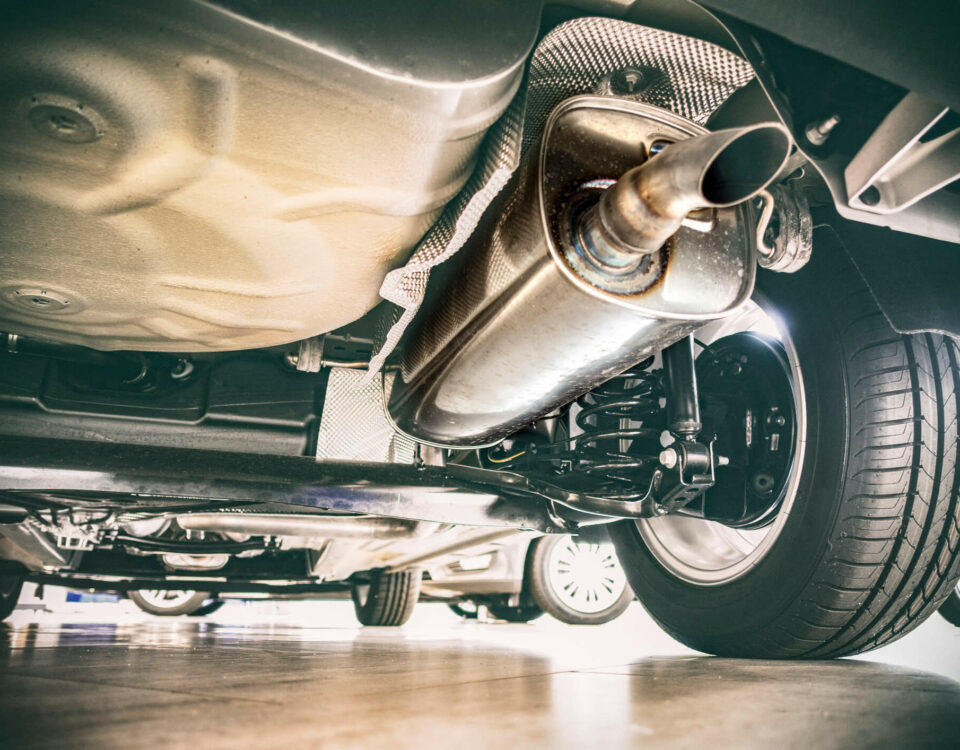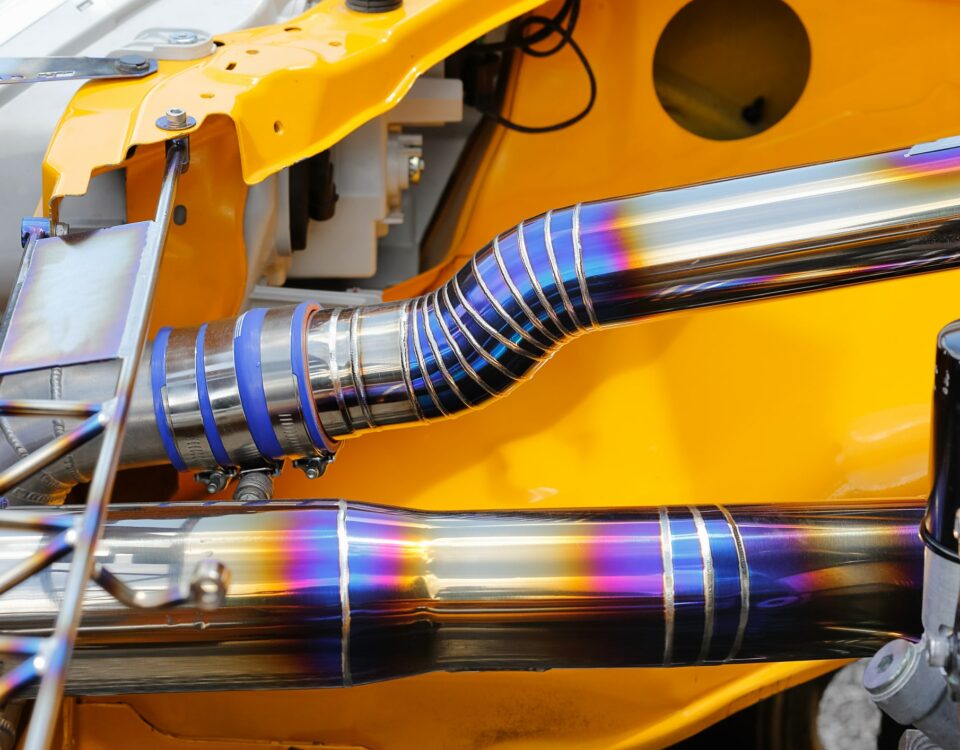Do Exhaust Systems Increase Horsepower?
Most aftermarket exhaust systems are less restrictive compared to original equipment exhaust systems. However, this does not necessarily guarantee an increase in power. The power boost you get from an aftermarket exhaust system can vary from as little as 2-3 horsepower to 50 horsepower, depending on your vehicle and the setup you select.
How Much Power Can an Exhaust Systems Add to a Car Engine?
A custom exhaust system can add power to a car engine by improving the engine’s ability to breathe, which can exhaust increase horsepower and torque, as there is less combustion. The exact amount of power that can be gained from an exhaust system depends on several factors, including the type of exhaust system and the size of the engine.
A high-performance exhaust system, such as a stainless steel or titanium system, can add anywhere from 5 to 20 horsepower to your car engine. Factors such as the current state of the car engine and any other modifications done to the engine will have an effect on the overall power increase.
Is It Necessary to Upgrade Your Exhaust System?
It depends on the specific situation. Upgrading the exhaust system can improve the performance and sound of a vehicle, but it is not necessary for the proper functioning of the vehicle. Ultimately, it comes down to personal preference and what the individual is looking to achieve with their vehicle.
Types of Exhaust Systems for Cars
There are several types of exhaust systems for cars, including:
- Stock Exhaust: This is the factory-installed exhaust system that comes with a new vehicle. It is designed to meet emissions and noise regulations, but may not provide the best performance or sound.
- Cat-Back Exhaust: A cat-back exhaust system replaces the portion of the exhaust system from the catalytic converter back to the tailpipe. It is a popular choice for those looking to improve the sound of their vehicle without affecting emissions.
- Axle-Back Exhaust: An axle-back exhaust system only replaces the muffler and tailpipe of the exhaust system. It is similar to a cat-back exhaust system in terms of sound improvement but less extensive.
- Turbo-Back Exhaust: A turbo-back exhaust system replaces the entire exhaust system from the turbocharger back to the tailpipe. It is the most extensive exhaust system upgrade and can provide the greatest performance gains.
- Header-Back Exhaust: A header-back exhaust system is designed to replace the entire exhaust system from the headers to the tailpipe, and it is the most expensive and extensive exhaust system upgrade.
- Short Ram/Cold Air Intake: It’s an intake system where the air filter is placed in a location closer to the engine and it can be placed in the engine bay, this type of intake system can provide better performance since the air filter is placed in a location with cooler air.
- Electric Exhaust Cutout: it is a device that can be installed in the exhaust system to allow the driver to control the flow of exhaust gases, by opening or closing the cutout valves, which will increase the exhaust flow, providing more power.
Ultimately, the type of exhaust system you choose will depend on your specific vehicle, the goals you have for it, and your budget.
Benefits and Drawbacks
The benefits of upgrading your exhaust system include:
- Increased horsepower and torque: A performance exhaust can improve your vehicle’s power and acceleration by reducing backpressure and allowing exhaust gases to flow more freely.
- Improved fuel efficiency: By reducing backpressure, a performance exhaust can also improve your vehicle’s fuel efficiency.
- Enhanced sound: Many people upgrade their exhaust for the improved sound that it can provide. A performance exhaust can give your vehicle a more aggressive and sporty exhaust note.
- Weight savings: Some aftermarket exhausts are made from lighter materials than the factory exhaust, which can result in weight savings and improved handling.
Drawbacks of upgrading your exhaust system include:
- Cost: Aftermarket exhaust systems can be expensive, and installation costs can add up as well.
- Warranty: Installing an aftermarket exhaust can void your vehicle’s warranty.
- Noise: Some aftermarket exhausts can be excessively loud, which can be a problem if you frequently drive in residential areas or near schools.
- Legal issues: Some states have laws regulating the amount of noise that a vehicle can produce, and an aftermarket exhaust can put you in violation of these laws. Make sure to check the laws of your state before installing a new exhaust.
- Reduced durability: Some aftermarket exhausts are not as durable as factory exhaust systems and may need to be replaced more frequently.
Upgrading your exhaust system can be a great way to improve the performance and sound of your vehicle, but it’s important to consider the cost and potential drawbacks before making your decision.
Should The Exhaust System Be Modified?
It is evident that exhaust modifications have more advantages than disadvantages. To reduce the hazards to your vehicle from maintaining an old, defective exhaust system, we advise you to replace your old exhaust system with a brand-new one. In addition, maintenance from a reliable mechanic is required for an older exhaust system to last longer. Sending your vehicle to a reputable garage like DKU will help avoid and issues or any substantial damage. Having a new exhaust system installed in your vehicle has many benefits and it is advisable to take your car to a mechanic for the installation. A new exhaust system can improve the performance and fuel efficiency of your car, reduce engine noise, and enhance the overall driving experience.
Conclusion
Whether a new exhaust system is the best choice for your vehicle depends on a variety of factors, including the make and model of your car, your driving habits, and your personal preferences. To determine what’s best for your specific situation, it’s always advisable to seek the advice of a knowledgeable and experienced mechanic. They can assess the current state of your vehicle, consider your driving needs and habits, and provide you with a professional recommendation.



